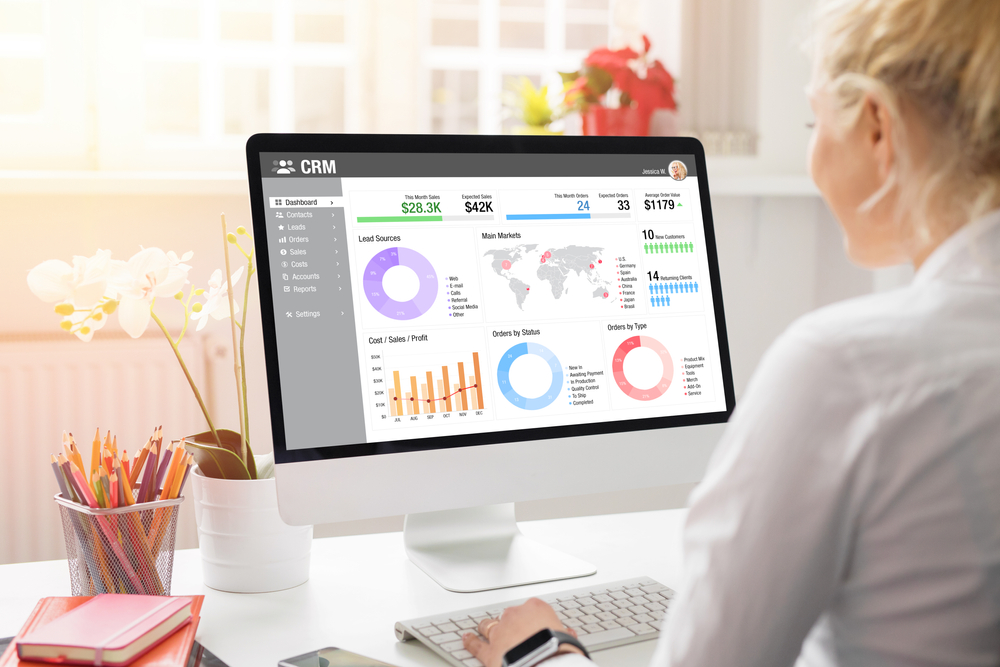In today’s competitive landscape, small businesses need to leverage every advantage they can to stand out from the crowd and achieve sustainable growth. While traditional marketing methods have their place, there is an increasingly vital tool that can amplify their effectiveness: marketing analytics. By harnessing the power of data insights, small businesses can make data-driven decisions to optimize their marketing strategies, improve customer targeting, and drive overall business success. In this article, we will explore how marketing analytics can benefit small businesses and provide actionable tips on how to leverage this resource effectively.

The Power of Marketing Analytics
Marketing analytics involves the practice of collecting, analyzing, and interpreting data to gain valuable insights into customer behavior, market trends, and the performance of marketing campaigns. With access to the right tools and expertise, small businesses can transform raw data into actionable knowledge, enabling them to make informed decisions to improve their marketing efforts.
Understanding your Customers
One of the most significant benefits of leveraging marketing analytics is gaining a deep understanding of your customers and their preferences. By analyzing data such as purchase history, demographics, browsing behavior, and social media interactions, small businesses can create detailed customer profiles and identify patterns and trends.
This valuable information can be used to refine target audience segmentation, personalize marketing messages, and tailor products or services to meet specific customer needs. Understanding your customers allows you to deliver more relevant content, effectively communicate your brand, and ultimately increase customer engagement and loyalty.
Optimizing Marketing Campaigns
Small businesses often operate with limited resources, making it crucial to maximize the return on marketing investment. Marketing analytics can help you make informed decisions about where to allocate your budget for maximum impact. By tracking the performance of various marketing channels and campaigns, you can identify which initiatives are delivering the best results and adjust your strategy accordingly.
For example, analytics can reveal which social media platforms generate the most traffic or conversions, indicating where your target audience is most active. Armed with this knowledge, you can focus your efforts on the platforms that offer the highest ROI and optimize future campaigns based on what resonates most with your audience.
Driving Better Decision-Making
In the past, many marketing decisions were purely intuition-driven, often leading to unpredictable outcomes. Marketing analytics, on the other hand, empowers small businesses to take a more data-driven approach. By tracking and analyzing marketing metrics, such as website traffic, click-through rates, and conversion rates, you can measure your marketing efforts’ effectiveness and make informed, strategic decisions.
For instance, analytics can help you identify underperforming landing pages or advertisements, enabling you to pinpoint areas for improvement. By continuously monitoring these metrics, you can iterate and refine your marketing strategies to better achieve your goals while minimizing wasted resources.
Identifying Emerging Trends
The business landscape is constantly evolving, and small businesses must stay agile to seize emerging opportunities. Marketing analytics can provide valuable insights into market trends, allowing small businesses to adapt and respond promptly.
By monitoring social media conversations, industry news, and competitor activity, small businesses can identify emerging trends and respond proactively. For example, analytics might reveal that there is an increasing demand for eco-friendly products, enabling your small business to adjust its marketing strategies and capitalize on this trend. Staying informed and adapting to market shifts can help you gain a competitive edge and position your business as an industry leader.
Leveraging the Right Tools
To unlock the full potential of marketing analytics, small businesses need to leverage the right tools and technologies available. Thankfully, there are numerous affordable and user-friendly software solutions tailored specifically for small businesses’ needs.
Google Analytics, for instance, offers a comprehensive suite of tools to help small businesses track website traffic, user behavior, and conversion rates. Social media management platforms like Hootsuite or Sprout Social provide robust analytics dashboards that allow businesses to measure the success of their social media campaigns. By investing in the appropriate tools and technologies, small businesses can access critical data and streamline their analytics processes effectively.
Best Practices for Small Businesses
While marketing analytics provides a wealth of opportunities for small businesses, it is essential to approach it strategically to reap the full benefits. Here are some best practices to consider:
- Establish Clear Goals: Clearly define your marketing goals and objectives before diving into data analysis. This will help you focus your efforts and measure success accurately.
- Identify Key Metrics: Determine which metrics are most relevant to your business objectives and regularly monitor and analyze those metrics. Tracking too many metrics can be overwhelming and unproductive.
- Integrate Data Sources: Small businesses often have data scattered across various platforms. Investing in data integration tools can help you consolidate data sources and gain a holistic view of your marketing efforts.
- Invest in Training and Expertise: While there are user-friendly analytics tools available, investing in training or hiring professionals can be beneficial. They can help you make sense of the data, identify meaningful insights, and translate them into actionable strategies.
- Embrace Continuous Improvement: Marketing analytics is an ongoing process. Regularly review your strategies, test hypotheses, and make data-driven adjustments to improve your marketing efforts constantly.
Marketing analytics presents small businesses with an invaluable tool to navigate the ever-changing business landscape. By leveraging customer insights, optimizing marketing campaigns, and making data-driven decisions, small businesses can not only survive but thrive in today’s competitive environment. Through careful planning, investment in the right tools, and a commitment to continuous improvement, marketing analytics can unlock growth opportunities and create a sustainable path to success for small businesses. Embrace the power of analytics and embrace a data-driven future for your business.
Do you own a Toyota? Learn Here: Introducing Toyota’s Social Network: A Community for Toyota Owners
